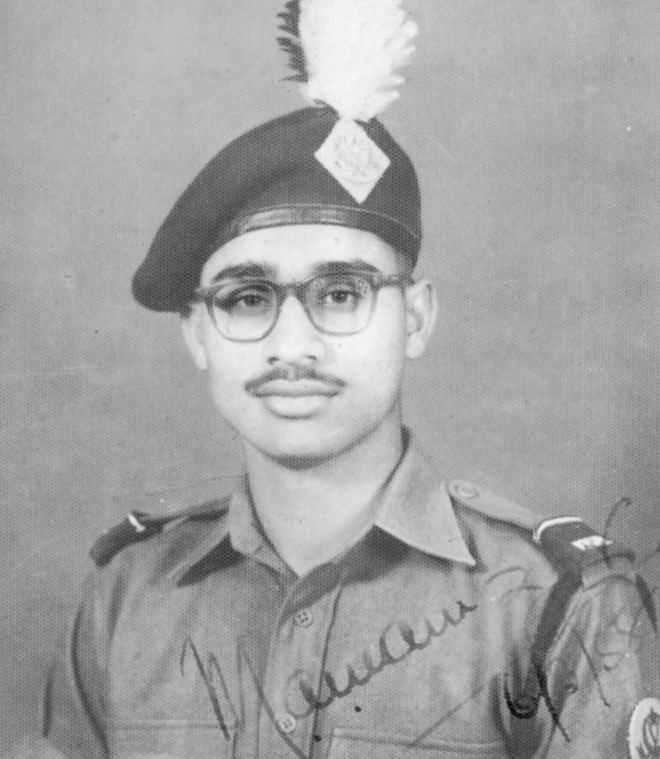The nation fed cooked-up story
President Ziaur Rahman was assassinated in Chittagong on May 30, 1981. Two days later, General Manzur was murdered. Facts related to the planned killing of Manzur show how top military leaders at the time desperately tried to bury the truth behind the Zia killing and how it helped them seize power. Manzur was the unsuspecting victim of their duplicity, which has become evident from the depositions of witnesses and the accused and from some authoritative books on the killing.
All these years since June 1981, justice for Manzur and his family has remained elusive.

Brigadier General Azizul Islam made a phone call to Chittagong Divisional Commissioner Saifuddin Ahmed in the morning of June 2, 1981 to place the responsibility on the civil administration of burying Major General Abul Manzur, who had been murdered inside the cantonment the previous night.
When Aziz made the call, Saifuddin was at a meeting with Deputy Commissioner of Chittagong Ziauddin M Chowdhury, DIG of Police ASMA Shahjahan and some other senior civil and police officials at his office to review the prevailing situation.
Aziz asked Saifuddin to have Shahjahan and Sheikh Maruful Huq, superintendent of police in Chittagong, go to the cantonment to arrange Manzur's burial.
On receiving the phone call, the senior officials discussed their next course of action.
"In no way will we get involved in the burial process," a firm Ziauddin told Shahjahan.
It was decided at the meeting that Shahjahan would inform Brig Aziz that under the law, if the police were to get custody of Manzur's body, a magisterial inquest would be necessary as this would be viewed as an "unnatural death."
They also informed the additional IGP of the matter to keep him abreast of developments.
Then Shahjahan and Maruful went to the cantonment and met Aziz. They told him what they had decided at the meeting. Brigadier General Abdul Latif was also present there.
But Brig Aziz wanted nothing to do with an inquest. All he wanted was a quick disposal of the body. He, however, wanted Manzur's burial at a place away from the cantonment. And he wanted police security for it.
As the police officials were repeatedly raising the legal issues involved, Aziz reacted in fury.
"The army will handle the dead body. We do not need any help from you," he told the police officials and asked them to leave the cantonment.
Subsequently, consultations with the army headquarters led to the decision to have Manzur buried inside Chittagong cantonment.
While Aziz and his men were working on the burial of Manzur, the army headquarters went on to complete all formalities regarding publicising a cooked-up story on Manzur's death. In so doing, the headquarters relied on Aziz's information.
Immediately after Manzur was murdered, Aziz made a phone call to General Ershad to give him the information. But he could not reach him. Then he called Chief of General Staff (CGS) Major General Nur Uddin and told him that Manzur had been killed by unruly soldiers as he was being taken to Chittagong cantonment from Hathazari police station.
Nothing could be more misleading. None of the army personnel who had brought Manzur to Chittagong cantonment from Hathazari police station had found any unruly soldier at the entrance to and inside the cantonment. Their access to the cantonment had been smooth on that night.
But it was the army headquarters that had relied on Aziz to publicise the false story about unruly soldiers killing Manzur and thereby put the blame on them for the murder of Manzur.
Every move was made in a planned way.
Some senior army officials--at least two major generals and two brigadier generals--at the army headquarters in the morning of June 2 put their heads together to publicise Aziz's fabricated story.
Brigadier General Harun Ahmed Chowhdury, the then director of military intelligence, approached Maj Gen Nur Uddin and gave him a piece of paper carrying the draft of the announcement of Manzur's death.
"What should be done about this matter?" said Harun, seeking guidelines from Nur Uddin.
"Which matter?" questioned the CGS.
"About the radio announcement [on Manzur killing]," replied Harun.
The CGS then went through the draft announcement and directed Harun to send it to the radio and television stations.
Before sending it, Harun read it out to the generals present there. "A group of unruly soldiers snatched General Manzur and killed him."
The announcement was broadcast on radio and television repeatedly from the morning of June 2.
Manzur's death was reported in the newspapers through a government press release issued by the army headquarters as an act of retribution by angry soldiers while he was being taken to the cantonment from Hathazari police station.
But the autopsy report prepared by army physicians at the Combined Military Hospital in Chittagong found no injury on Manzur's body, except for the bullet injury in his head. The autopsy report rejected the army headquarters' claim that Manzur had been killed by unruly soldiers.
To conceal the truth behind the killing, the army personnel who had brought the general to the cantonment from Hathazari police station also faced intimidation and were directed to own the story invented by the army headquarters.
Take the case of Nayeb Subedar Nurul Islam, who was a member of the squad that had brought Manzur to the cantonment from Hathazari. He could not believe the radio announcement. So, he asked Nayek Mohammad Ali, who had been on the jeep carrying Manzur to the cantonment, about the truth.
"We did not hear sounds of any firing. What actually happened?" Nurul asked.
"I don't know all these. Don't discuss this matter. If you do so, you will be punished," Ali warned Nurul.
At a meeting at the Bangabhaban at noon on June 2, IGP ABMG Kibria, compelled by the army chief the previous day to order the police to hand over Manzur to the army, had asked Ershad about Manzur murder.
"How was Manzur killed when at your prodding and insistence the acting president ordered handing him and others over to military custody, which in effect is your custody," he asked Ershad.
Ershad replied: "As soon as Manzur was brought to the cantonment, he was killed by irate soldiers in a burst of fire."
Ershad repeated the story on Manzur killing to Air Force chief Sadar Uddin, who had left the Bangabhaban on the night of June 1 immediately after the acting president had ordered handing Manzur over to the army's custody.
On receipt of news of the killing, Sadar Uddin early in morning of June 2 made a phone call to Ershad and told him: "Mr Ershad, you guys have killed General Manzur! It was not right."
Iin response, Ershad said, “No, actually troops got unruly and they killed him,".
Sadar Uddin did not believe Ershad. "Tell this story to others. Don't ask me to believe it."
[The report has been prepared on the basis of the depositions of witnesses and persons accused in the Manzur murder case and the book, 'Assassination of Ziaur Rahman and the Aftermath", by Ziauddin M Chowdhury, who was DC Chittagong in 1981]

 For all latest news, follow The Daily Star's Google News channel.
For all latest news, follow The Daily Star's Google News channel. 



Comments